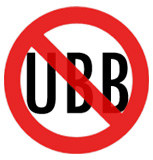Your money train is leaving the station.
Customers are about to start making some very important choices about what they do on the Internet. AT&T announced this month they are going to start capping their DSL customers at 150GB per month and their fiber-to-the-neighborhood U-verse customers at 250GB per month, with overlimit fees for those who exceed them.
Comcast already has a 250GB per month cap, currently loosely enforced. Time Warner Cable has strongly advocated usage-based billing for years. Other telecommunications companies are all either supporting or considering these Internet Overcharging schemes for one reason, and one reason only:
It makes them absolute boatloads of cash.
Canada already lives with this reality. So does Australia, although they’re backing away from it. South Korea? Japan? Europe? Nope. Flat-rate Internet service is the norm there. In Europe, mobile customers are demanding the removal of bandwidth caps American providers are still trying to attach to customers’ bills.
So how does this impact you? 250GB a month is a lot, and you’ll be fine? Sure. For now.
But what happens when Sony introduces the Playstation 4, or Microsoft announces the Xbox Next? Games aren’t exactly going to get smaller, and online distribution is far and away the future of games and software in general. Right now a game for the 360 or PS3 can be as large as 20GB. PC game enthusiasts routinely cope with 10-12GB game upgrades, and woe be unto you if you have to reinstall your Steam library and have 20-30 (or more) games to restore.
For the “Massively Multiplayer Online” game universe, incremental software updates and upgrades often come through BitTorrent, which exposes users to peer-to-peer traffic well beyond the size of the update itself. In fact, as games increasingly turn towards Cloud storage and distribution, the traffic adds up.
For online video companies, your very business model could be at risk. Netflix? Hulu? People are no longer satisfied with grainy, compressed video. They want HD content, and you’ve answered the call. But as consumers increasingly face 8-10GB per movie (at 720p, 15GB+ for 1080p), the usage racked up is going to blow past all of these caps.
Who knows what happens in the next five years, or ten. Considering Canada, where a similar duopoly of broadband providers have lowered usage allowances, do you really expect anything different down here? The only thing likely to be raised is the monthly price, which remains higher here than in most places around the world.
Google has the right idea with their experimental 1Gbps fiber-to-the-home network. The problem is, that’s only going to serve one (or perhaps a few) communities in the U.S. The rest of the country will have to survive with ‘Ultra’ cable broadband packages serving up 10-20Mbps service or DSL that barely manages 6Mbps. If you don’t live in an urban area, tough luck. You will be lucky to get 3Mbps service.
Broadband service upgrades come painfully slow in the absence of robust competition. Time Warner Cable and other providers are slowly starting to roll out DOCSIS 3, which allows speeds up to 100Mbps, assuming the average consumer can afford the Cadillac price that comes with it. Many phone companies continue to bet the farm on their DSL service, which can also be expensive when it’s the only broadband service in town.
Against this backdrop, the rest of the world marches on, and beyond, North America.
South Korea? They’re promising national speeds of 1Gbps by 2013 — for $27 a month!
How has this happened? Where have we gone wrong?
For starters, the broadband providers have very powerful lobbyists — quite a few of which are ex-legislators. Together, they wage their public policy battles on both the state and federal level, often writing the bills a compliant legislator is willing to introduce as their own.

Washington regulators take a "see no evil, hear no evil" approach to regulating super-sized corporations who can cause them trouble.
The Federal Communications Commission has adopted a “see no evil, hear no evil” approach to broadband, capitulating when a chairman occasionally strays too far into the industry minefield laid to protect their business agenda. As a result, the agency is a toothless dog. It recently adopted a “Net Neutrality” policy all but written by Verizon, who ironically is now spending money to fight the rules they helped write. As a backup, virtually every Republican and several Democrats have teamed up to pass a Resolution of Disapproval seeking to overturn the weak-kneed Net Neutrality rules the FCC adopted. Lobbyists are well paid to cover every contingency.
Consumers — your customers — can’t do much about this beyond writing their members of Congress and complaining. But because they did not enclose a check or money order made payable to the respective politician’s campaign fund, the result will be a form letter response weeks, if not months later… after the corporate agenda is enacted into law.
We just cannot fight this battle all by ourselves. Recognizing the realities of today’s politics, we need your help to fight money and power with money and power.
The video game industry earns billions yearly. You have already faced battles in Washington, so you know how this works. You can fight for your interests while protecting ours by ensuring broadband service is cheap, plentiful, and unlimited. The same story applies to other content producers, such as online video, software, and any other company that wants to move to online distribution to power their business. You cannot succeed if customers are too afraid of using your service because of a bandwidth cap.
The remarkable thing is that countries many Americans cannot find on a map are now beating the United States with better and cheaper broadband while we hand over our digital economic future to a duopoly. That will not buy us better service, just bigger bills for “fast enough for you” Internet access.
So that’s it. Act now. Act strongly. If you cannot stand up for your customers, you may not have any.
Signed: A gamer. A movie watcher. A music listener. An enjoyer of entertainment. A lover of the Internet.
Broadband consumer and reader Jason Ballew penned this guest editorial, with some editing and additions from Stop the Cap! editor Phillip M. Dampier.


 Subscribe
Subscribe










